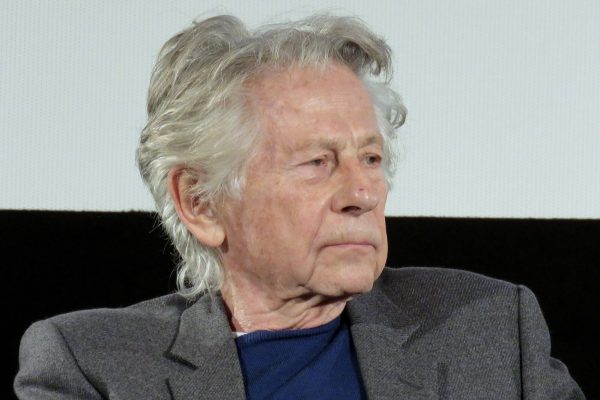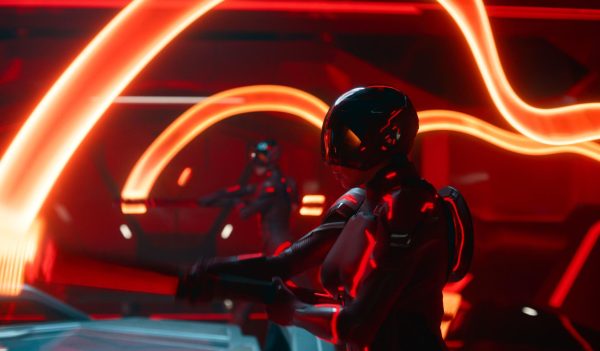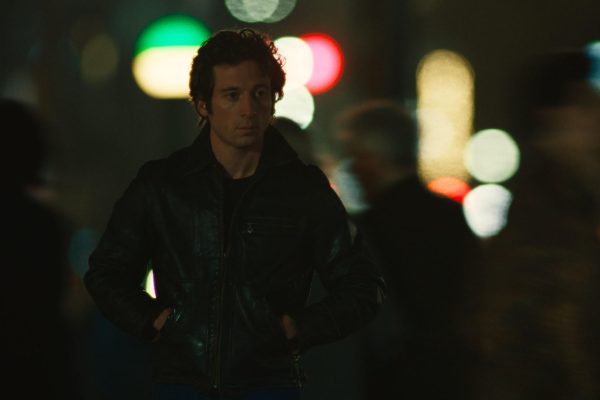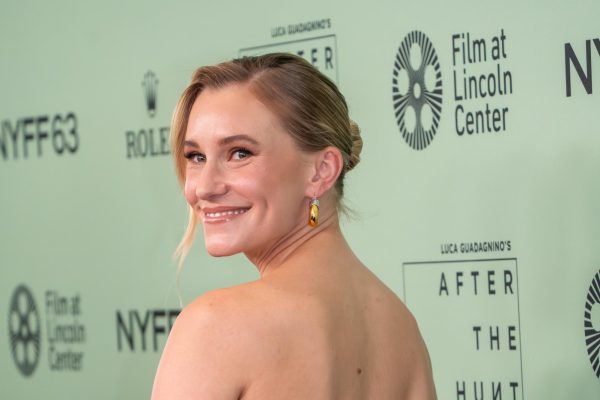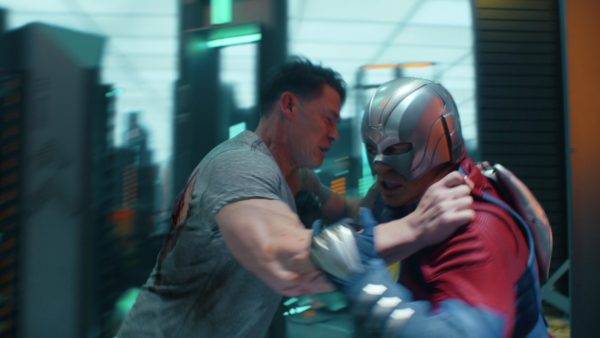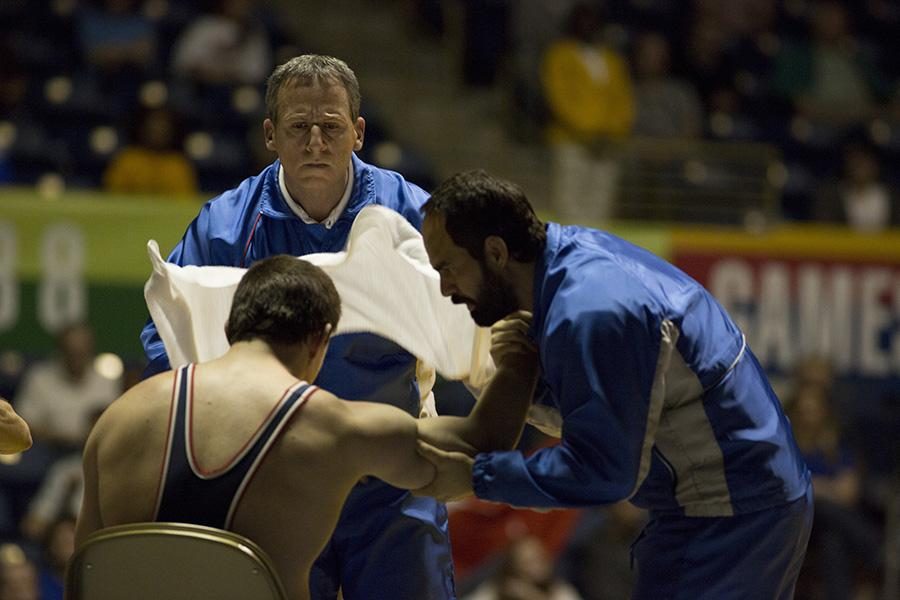‘Foxcatcher’ questions family, power
Related stories
Photo by Scott Garfield, Courtesy of Sony Pictures Classics
Left to right: Channing Tatum as Mark Schultz, Steve Carell as John du Pont and Mark Ruffalo as Dave Schultz.
Perhaps the most haunting element of Bennett Miller’s “Foxcatcher” is the psychology behind the characters. Unlike many contemporary films that seem to focus a great deal on plot construction, “Foxcatcher” takes its time reaching the finish line through an ongoing character study. This intense focus on exploring characters’ heads, done through close-ups of their seemingly trivial actions, conjure images of films such as Martin Scorsese’s “Taxi Driver,” where character psychology takes center-stage.
Based on a true story, “Foxcatcher” begins by introducing Mark (Channing Tatum) and David Schultz (Mark Ruffalo) as brothers and wrestlers, the latter being the older sibling and coach of the former. Despite Mark winning an Olympic gold medal, his brother constantly overshadows his talent. Because of this, Mark seems insecure, and is inarticulate and self-destructive. While the dialogue between the brothers attests to their tense relationship, their physical actions reveal far more.
In a way, “Foxcatcher” is about physicality, which plays out through wrestling. For instance, in the opening scenes where David is coaching Mark, the viewer gets his first glimpse at their complicated brotherly relationship — Mark is clearly taking their practice match more personally.
Claiming the tension between the two brothers is due to sibling rivalry would be too simple. While Mark resents David for always living in his shadow, he is also emotionally attached to David, who serves as a father figure to him. Their relationship becomes more complicated, however, when John du Pont (Steve Carell), a wrestling coach from a prominent and wealthy American family, decides to take Mark under his wing.
Carell’s performance is essential to the foreboding atmosphere of “Foxcatcher.” This is indeed the same actor who has played goofy characters in comedy hits such as “Anchorman” and NBC show “The Office.” There is nothing funny, however, about Carell’s performance in this story when he seamlessly steps into the shoes of the dark and troubled John. Carell’s transformation goes beyond just his chilling delivery. He exhibits physical changes, including a big prosthetic nose, making it difficult to even recognize him.
From John’s very first scene in the film, it is hard to figure out what his motives are, but his intense interest in Mark warrants caution. John immediately throws money and praise Mark’s way, even telling him that he is better than his brother David. Mark, being his naïve and sincere self, shows nothing but gratitude and devotion in return. While John and Mark seem to be developing a brotherly connection, a series of events begins to reveal the superficiality of their relationship.
As John’s true character slowly unravels, both Mark’s wrestling career and his relationship with John and David are up in the air. With the looming question of whether Mark is capable of succeeding without either of these men, “Foxcatcher” explores the dynamic of relationships, ones of family and power, and quests for greatness.
A version of this article appeared in the Thursday, Nov. 13 print edition. Email Alexandra Mujica at [email protected].























































































































































